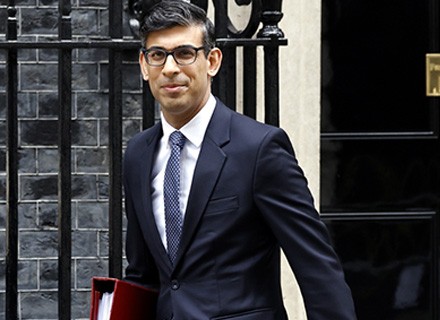Rail fare rises in the United Kingdom will not exceed 9% in 2024 and will be delayed until next March, the Rishi Sunak government has said.
Ticket costs used to increase in January of every year in line with inflation as measured by the retail prices index over the 12 months to the previous July. The Office for National Statistics (ONS) has revealed that the RPI rate for July 2023 was at 9%.
However, talking about 2023, for the first time in more than 25 years, the United Kingdom government opted instead to raise fares from March in line with the United Kingdom’s average earnings growth of 5.9% in the quarter to July 2022, rather than by that month’s RPI figure of 12.3%.
While the Department for Transport (DfT) has confirmed its plans to delay the change in ticket costs, John Glen, the chief secretary to the Treasury, told Sky News, “We have said that we will keep it below inflation. Obviously, I will be working closely with Mark Harper, the secretary of state [for transport], on what mechanism to use.”
“But there are tough decisions now around how to use his budget in a way that suits commuters and suits the economy as a whole – delicate, difficult decisions. We have not come to the end of that discussion yet,” the senior official added further.
The government, so far, has not revealed how it will calculate the rail fare increase in 2024, but average earnings growth in the three months to June 2023 had been at 7.8%. The July figure will be published on 12 September.
“The Scottish and Welsh governments have not announced their rail fare plans for 2024. Fares in Northern Ireland are set by the operator Translink,” noted a Guardian report.
It is also to be noted that any significant rise in rail fares will likely draw the ire of campaigners and rail users after a series of delays and cancellations caused by a long-running dispute between the UK government and the unions over pay, jobs and conditions.
Adrian Ramsay, the Green party co-leader, has called on the Rishi Sunak government to freeze rail fares and reverse plans to close ticket offices, in order to make train travel less expensive and more attractive so the country can meet its climate change targets.
He told the media, “If the UK is to meet its climate commitments then we need more people choosing trains over cars and planes, and we need more commuters opting for public transport and active travel to get to work. Making train travel more expensive, while closing rail ticket offices that support travellers to get the best deal, would underscore the government’s contempt for climate action and the travelling public.”
Anthony Smith, the chief executive of the passenger watchdog Transport Focus, added further, “Nobody likes their fare going up, but after a year where many journeys have been blighted by disruption due to industrial action and patchy performance, passengers will be relieved to hear that fares will be capped below the retail price index (RPI) and any increases will be delayed until March next year.”
Meanwhile, public transport campaigners have warned about “passengers still being subjected to a large fare hike” and are now calling for a freeze on ticket prices despite the Rishi Sunak government’s promises that rail travellers not face the full force of an inflation-linked fare rise in 2024.
But Paul Tuohy, chief executive of the Campaign for Better Transport (CBT), told the Independent that any fare increase “would do nothing to get people back on board trains”.
The organisation, which is calling instead for rail fares to be frozen at 2023 levels until long-promised ticketing reform is delivered, stated further, “Over 50 million types of train ticket make it hard to know when you’re getting the best deal,” as it pointed out that motorists have been benefiting from 13 consecutive years of frozen fuel duty.
In April 2023, the UK government halved ‘Air Passenger Duty’ for domestic airline passengers, cutting the cost of flying from Edinburgh to London by 6.50 pounds.

